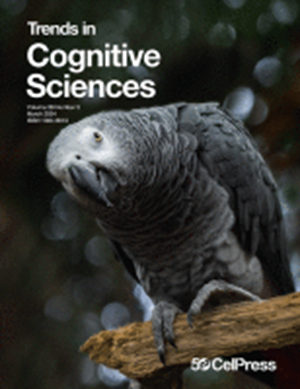不仅仅是不好奇,而是故意无知的发展。
IF 17.2
1区 心理学
Q1 BEHAVIORAL SCIENCES
引用次数: 0
摘要
在一个信息丰富的世界里,选择不知道的能力是一种重要的认知工具。但是故意无知的发展起源是什么呢?我们确定了儿童信息生态中认知能力的选择和变化,这些变化使故意的无知在整个发展过程中越来越可能和可取。本文章由计算机程序翻译,如有差异,请以英文原文为准。
More than incurious: the development of deliberate ignorance.
In an information-rich world the ability to choose not to know is an important cognitive tool. But what are the developmental origins of deliberate ignorance? We identify a selection of cognitive capacities and changes in children's information ecology that make deliberate ignorance increasingly possible - and desirable - across development.
求助全文
通过发布文献求助,成功后即可免费获取论文全文。
去求助
来源期刊

Trends in Cognitive Sciences
医学-行为科学
CiteScore
27.90
自引率
1.50%
发文量
156
审稿时长
6-12 weeks
期刊介绍:
Essential reading for those working directly in the cognitive sciences or in related specialist areas, Trends in Cognitive Sciences provides an instant overview of current thinking for scientists, students and teachers who want to keep up with the latest developments in the cognitive sciences. The journal brings together research in psychology, artificial intelligence, linguistics, philosophy, computer science and neuroscience. Trends in Cognitive Sciences provides a platform for the interaction of these disciplines and the evolution of cognitive science as an independent field of study.
 求助内容:
求助内容: 应助结果提醒方式:
应助结果提醒方式:


